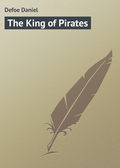
Даниэль Дефо
The True-Born Englishman
PREFATORY NOTE
"An American Robinson Crusoe" is the outcome of many years of experience with the story in the early grades of elementary schools. It was written to be used as a content in giving a knowledge of the beginning and development of human progress. The aim is not just to furnish an interesting narrative, but one that is true to the course of human development and the scientific and geographical facts of the island on which Robinson is supposed to have lived.
The excuse for departing so widely from the original story is to be found in the use which was desired to be made of it. The story here presented is simply the free adaptation of the original narrative to the demand for a specific kind of content in a form which would be interesting to the children.
The teacher is and should be justified in using with entire freedom any material accessible for the ends of instruction.
The text as here given has been published with an introduction and suggestive treatments as a Teacher's Manual for Primary Grades – "The Teacher's Robinson Crusoe." Explicit directions and ample suggestions are made for the use of the story as material for instruction in all the language arts, drawing, social history, and the manual arts.
Published by the Educational Publishing Company.
I
ROBINSON WITH HIS PARENTS
There once lived in the city of New York, a boy by the name of Robinson Crusoe. He had a pleasant home. His father and mother were kind to him and sent him to school. They hoped that he would study hard and grow up to be a wise and useful man, but he loved rather to run idle about the street than to go to school. He was fond of playing along the River Hudson, for he there saw the great ships come and go. They were as big as houses. He watched them load and unload their cargoes and hundreds of people get off and on. His father had told him that the ships came from far distant lands, where lived many large animals and black men. His father told him too, that in these faraway countries the nuts on the trees grew to be as large as one's head and that the trees were as high as church steeples.
When Robinson saw the ships put out to sea, he would watch them till they would disappear below the horizon far out in the ocean, and think, "Oh, if I could only go with them far away to see those strange countries!" Thus he would linger along the great river and wish he might find an opportunity of making a voyage. Often it would be dark before he would get home. When he came into the house his mother would meet him and say in a gentle voice, "Why, Robinson, how late you are in getting home! You have been to the river again."
Then Robinson would hang his head and feel deeply ashamed, and when his father, who was a merchant, came home from the store, his mother would tell him that Robinson had again been truant.
This would grieve his father deeply and he would go to the boy's bedside and talk earnestly with him. "Why do you do so?" he would say. "How often have I told you to go to school every day?" This would for a time win Robinson back to school, but by the next week it had been forgotten and he would again be loitering along the river in spite of his father's remonstrances.
II
ROBINSON AS AN APPRENTICE
In this way one year after another slipped by. Robinson was not more diligent. He was now almost sixteen years old and had not learned anything. Then came his birthday. In the afternoon his father called him into his room. Robinson opened the door softly. There sat his father with a sad face. He looked up and said, "Well, Robinson, all your schoolmates have long been busy trying to learn something, so that they may be able to earn their own living. Paul will be a baker, Robert a butcher, Martin is learning to be a carpenter, Herman a tailor, Otto a blacksmith, Fritz is going to high school, because he is going to be a teacher. Now, you are still doing nothing. This will not do. From this time on I wish you to think of becoming a merchant. In the morning you will go with me to the store and begin work. If you are attentive and skillful, when the time comes you can take up my business and carry it on. But if you remain careless and continue to idle about, no one will ever want you and you must starve because you will never be able to earn a living."
So the next morning Robinson went to the store and began work. He wrapped up sugar and coffee, he weighed out rice and beans. He sold meal and salt, and when the dray wagon pulled up at the store, loaded with new goods, he sprang out quickly and helped to unload it. He carried in sacks of flour and chests of tea, and rolled in barrels of coffee and molasses. He also worked some at the desk. He looked into the account books and saw in neat writing, "Goods received" and "Goods sold." He noticed how his father wrote letters and reckoned up his accounts. He even took his pen in hand and put the addresses on the letters and packages as well as he could.
But soon he was back in his careless habits. He was no longer attentive to business. He wrapped up salt instead of sugar. He put false weights on the scales. He gave some too much and others too little. His hands, only, were in the business, his mind was far away on the ocean with the ships. When he helped unload the wagons, he would often let the chests and casks drop, so that they were broken and their contents would run out on the ground. For he was always thinking, "Where have these casks come from and how beautiful it must be there!" And many times packages came back because Robinson had written the name of the place or the country wrong. For when he was writing the address, he was always thinking, "You will be laid upon a wagon and will then go into the ship." One day he had to write a letter to a man far over the sea. He could stand it no longer. His father had gone out. He threw down the pen, picked up his hat and ran out to the Hudson to see the ships, and from that time on he spent more time loitering along the river than he did in the store.
III
ROBINSON'S DEPARTURE
Robinson's father soon noticed that his son was no longer attending to his work, and one morning sent for him to come to his office. When Robinson came in his father arose from his chair and looked him long and earnestly in the face. Then he said, "I am very sorry, Robinson, that you seem determined to continue your evil ways. If you do not do better you will grow up to be a beggar or worse." Robinson cast his eyes down and said, "I do not want to be a merchant, I would rather sail in a ship around the world." His father answered, "If you do not know anything you cannot be of use on a ship, and no one will want you. In a strange land you cannot live without working. If you run away from your parents you will come to be sorry for it." Robinson wept, for he saw that his father was right, and he promised to obey.
After two or three weeks, Robinson went to his mother and said, "Mother, won't you go to father and tell him that if he will only let me take one voyage and it proves to be unpleasant, I will come back to the store and work hard?" But the mother cried. With tears in her eyes, she said: "Robinson, your brothers are both dead. You are the only child left to us and if you go away, we shall be entirely alone. How easy it would be to be drowned in the sea, or torn to pieces by wild animals away there in a foreign country. Both your father and myself are getting along in years and who will take care of us when we are sick? Do not cause us the grief we must suffer if you go away so far amid so many dangers. I cannot bear to have you speak of it again."
Robinson did not speak of it again, but he did not forget it. He was nineteen years old. It was one day in August that Robinson stood at the wharf looking longingly after the departing ships. As he stood there, someone touched him on the shoulder. It was a ship captain's son. He pointed to a long ship and said, "My father sails to-day in that ship for Africa and takes me with him."
"Oh, if I could only go with you!" cried Robinson.
"Do come along," cried his comrade.
"But I have no money," said Robinson.
"That doesn't make any difference," returned the captain's son. "We will take you anyway."
Robinson, without thinking for a moment, gave his friend his hand and promised to go with him.
So without saying "Good-bye" to his parents, Robinson went immediately on board the ship with his friend. This happened on the 10th of August.
IV
ROBINSON FAR FROM HOME ROBINSON'S VOYAGE
Once on board, Robinson watched the preparations for departure. At command the sailors clambered up into the rigging and loosened the sails. Then the captain from his bridge called out, "Hoist the anchor!" Then the great iron hooks that held the ship fast were lifted up, a cannon sounded a final farewell. Robinson stood on the deck. He saw the great city shimmer in the sunshine before him. Very fast now the land was being left behind. It was not long until all that could be seen of his native city was the tops of the highest towers. Then all faded from sight. Behind, in front, right and left, he saw nothing but waters.
He became a little afraid. At noon there arose a strong wind and the ship rocked to and fro. He became dizzy and had to hold fast to something. The masts and rigging began to dance. It seemed to him as if all was turning around. Suddenly he fell full length on the deck and it was impossible for him to get up. He was seasick. He wailed and cried, but no one heard him, no one helped him. Then he thought of his home, his parents whom he had so ungratefully left.
He had been on the water about two weeks when one day as he lay in his room, Robinson heard people over his head running about and crying, "A storm is coming!" The ship's sides trembled and creaked. The ship was tossed like a nutshell. Now it rolled to the right, now to the left. And Robinson was thrown from one side to the other. Every moment he expected the ship to sink. He turned pale and trembled with fear. "Ah, if I were only at home with my parents, safe on the land," he said. "If I ever get safe out of this, I will go home as quickly as I can and stay with my dear parents!" The storm raged the whole day and the whole night. But on the next morning the wind went down and the sea was calm. By evening the sky was clear and Robinson was again cheerful. He ran about the ship. He looked at the glittering stars and was contented and happy.
V
THE SHIPWRECK
Several weeks went by. Robinson had long ago forgotten his resolutions to return home. It was very hot. The glowing sun beat down upon the ship. The wide surface of the sea glistened. No breeze stirred. The sails hung loose on the top of the mast. But far away on the shore could be seen a black bank of clouds.
All at once the ship was thrown violently to one side by a fierce gust of wind. Robinson threw himself on the deck. The sea began to rise and fall. The waves were as high as mountains. Now the ship was borne aloft to the skies, and now it would seem that it must be overwhelmed in the sea. When it sank down between the great waves of water, Robinson thought it would never again rise. The waves beat violently on the ship's side. Robinson went down the steps into his little room, but he came back full of anxiety. He believed every minute he would meet death in the waves. The night at last came on. The lightning flashed. The storm howled. The ship trembled. The water roared. So the night wore on. The storm raged for six days. Then on the seventh day it was somewhat abated. But the hope was soon dashed. The storm had abated but to get new strength. Suddenly it bore down with frightful power on the doomed vessel, struck it, and shot it like an arrow through the water. Then Robinson felt a fearful crash. The ship groaned as if it would fall into a thousand pieces. It had struck a rock and there held fast. At the same moment the sailors raised the cry, "The ship has sprung a leak!" The water surged into the ship. All called for help. Each one thought only of himself. There was only one boat. The others had all been torn away. It was soon let down into the sea. All sprang in. For a moment the sailors forgot the waves, but all at once a wave, mountains high, struck the boat and swallowed it up. Robinson shut his eyes. The water roared in his ears. He sank into the sea.
VI
ROBINSON SAVED
Robinson was borne down far, far into the ocean. He attempted to work himself up, so that he could see light and breathe the air. But again and again the waves carried him down. Finally a wave threw him up and he saw, for a moment, the light of day and got a breath of air, but the next instant he was deep under the water. Then another wave bore him on its crest. He breathed a deep breath and at the same time saw land not far away. He bent all his strength toward reaching the land. He got almost to it, when a wave caught him and hurled him on a jutting rock. With all his strength he seized the rock with both hands and held on.
Presently he worked himself up a little and at last got a foothold. But, scarcely had he done so, when his strength left him and he fell on the ground as one dead. But he soon revived. He opened his eyes and looked around. He saw above him the blue sky, and under him the solid brown earth, and before him the gray angry sea. He felt to see if he still breathed. The storm had destroyed the ship. The waves had overwhelmed the boat. The water wished to draw him into the deep. The rocks seemed to want to hurl him back, but storm and wave and rock had accomplished nothing. There was One who was stronger than they.
Then Robinson sank on his knees and folded his hands. Tears came to his eyes. He breathed hard. At last he said, "Dear Father in Heaven, I live. Thou hast saved me. I thank Thee."
VII
THE FIRST NIGHT ON LAND
"Where are my companions?" That was his first thought. He began to call and halloo: "Where are you?" "Come here!" But no one answered. Then he wished to see if anyone lived on the land, and he cried, "Is there no one here? Hello!" but all remained still.
All at once he drew himself together and shrank back. He heard a bush rustle and the thought came like a flash, "That is a wild animal that will pounce upon me and tear my flesh with his teeth and claws. How shall I save myself? Where shall I fly for safety? Where shall I turn? I have nothing but my clothes and my life saved from the water. All that I had the waves have swallowed up."
And then hunger and thirst began to trouble him. He had eaten nothing the whole day and the salt water had made him sick.
In the meantime the night had come on. Robinson was very tired.
Everything was new and strange. He did not know which way to move.
He was in the greatest terror.
He expected to hear the roar of wild beasts from every secluded spot. Lions and tigers and dreadful serpents filled his thoughts. He must find shelter from them. But where should he pass the night? Not a house, a hut or a cave was to be seen. He stood a long time hesitating and did not know what to do. Finally he thought, "I will do as the birds do and get into a tree." He very soon found a tree which had such thick branches that it would hold him up.
Robinson climbed up into the tree, made himself as comfortable as possible, said his prayers, and as he was thoroughly exhausted, he soon fell asleep. When he awoke the sun was high in the sky. At first he could not remember where he was. Then the truth burst upon him. He tried to move. He was stiff and sore. His flesh was bruised from being thrown against the rocks and beaten by the waves.
He was dreadfully thirsty. His mouth and throat were dry and parched from the salt water. His tongue was thick and swollen. He said, "I must find some water to drink or I shall die!"
It was hard work to get down from the tree. His limbs and back ached from sitting in the tree all night At last he slipped down and fell on the ground. He clasped his hands in prayer and thanked God for keeping him through the night.
Then he got up and tried to walk. He was so weak he could not stand.
He threw himself down on the ground and began to sob and cry, "O Lord, do not let me die! Do not let me die!" As he lay there he heard a queer sound. He listened. It sounded like water running over rocks. He tried to get to the place from which the sound came. He tried to walk. When he fell he crawled on his hands and knees. At last the sound was close by. He dragged himself up on the rocks. Yes, there was a spring of clear, cool, sparkling water bubbling up and trickling over the stones. Robinson was so thirsty he put his face into the water and drank and drank.
Then he sat down, and after a while he drank again and again.
After Robinson had satisfied his thirst and rested awhile, he felt much better. He said, "I must try to walk and see whether I can find something to eat." He found many kinds of fruits and berries all around him, but he was afraid to eat them, as they were strange to him and he feared they might be poisonous.
As he was walking along, all at once he spied a tall plant in the distance which had a familiar look. It looked like corn. He said to himself, "I wonder if it can be corn." At last he came near enough to recognize it. Yes, it was corn. It did not look exactly like the corn that he saw at home, but still he knew it would be safe to eat it. He broke off an ear and eagerly ate the kernels raw. Oh, how good it was! Robinson could not remember anything that tasted half so good.
He ate as much as he wanted and then filled his pockets with ears of corn for his supper. Then he went back to the spring to get another drink.
VIII
ROBINSON ON AN ISLAND
After his hunger and thirst were satisfied, Robinson thought he would try to find another dwelling place. "My legs are stiff and sore from sitting so uncomfortably last night, and there is so much danger of falling," he said. "I will climb yonder hill and look around and see on which side the houses are. I will find me a stick to help me on my way."
He broke a stick from a dry bush and climbed up the steep sides of the hill. After a half hour's climb he was on top. What a sight met his eyes! There were no houses, no huts to be seen, no smoke arose from the forest, no field could be seen. Nothing but trees and bush, sand and rock.
"I am then upon an island alone, without food, without shelter, without weapons! What will become of me?" he cried. "I am a prisoner. The island is my prison, the waves are the guards which will not allow me to get away. Will no ship ever come to set me free?"
He stretched his gaze out to the sea till his eyes ached, but he saw no ship.
Robinson came down and seated himself on a stone and considered what he should do. It was not yet noon, yet he feared greatly the next night. "I must find me a better bed," was his first clear thought.







